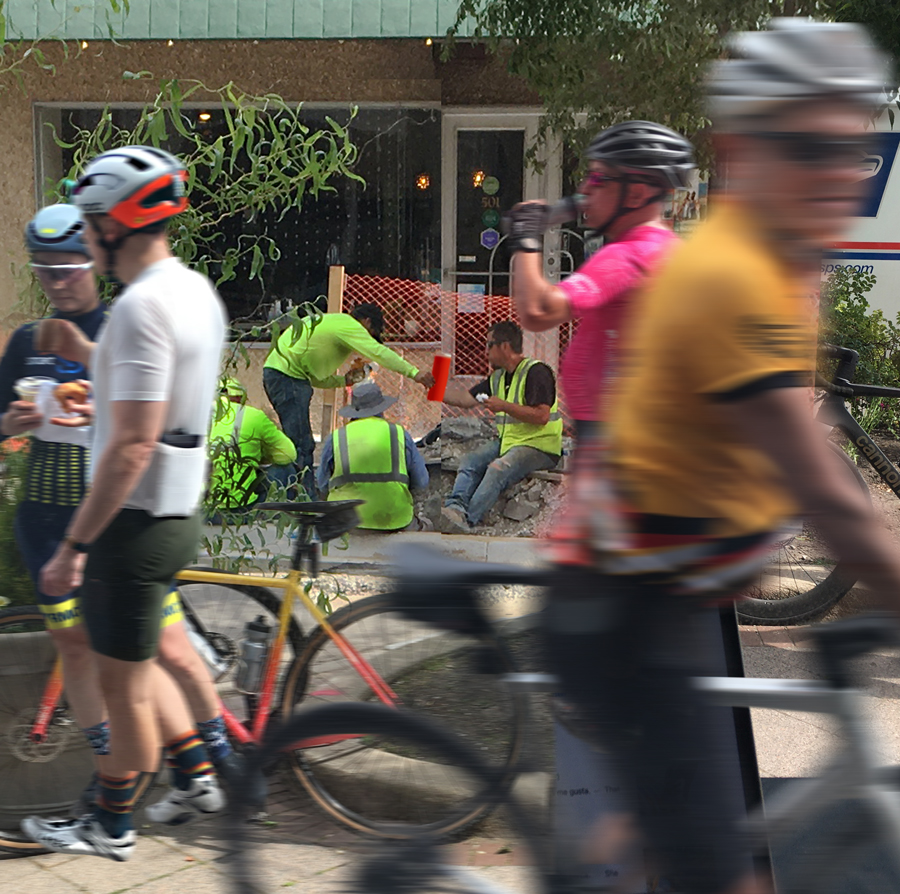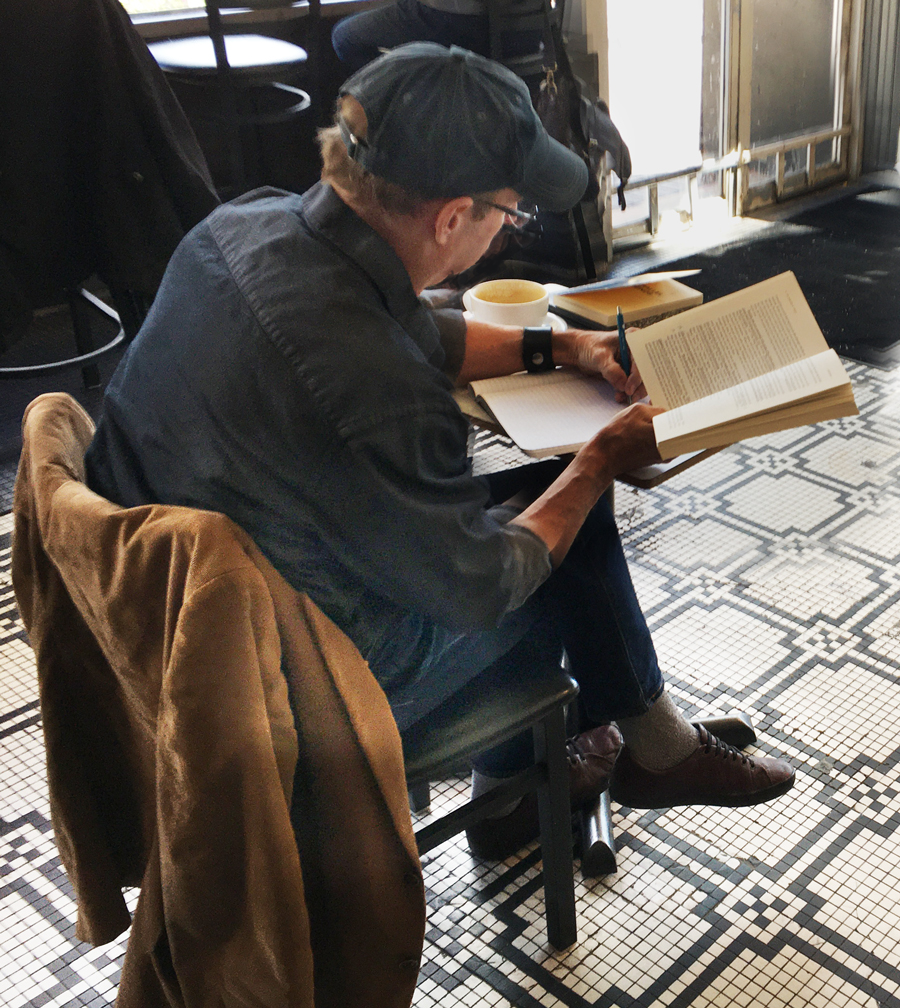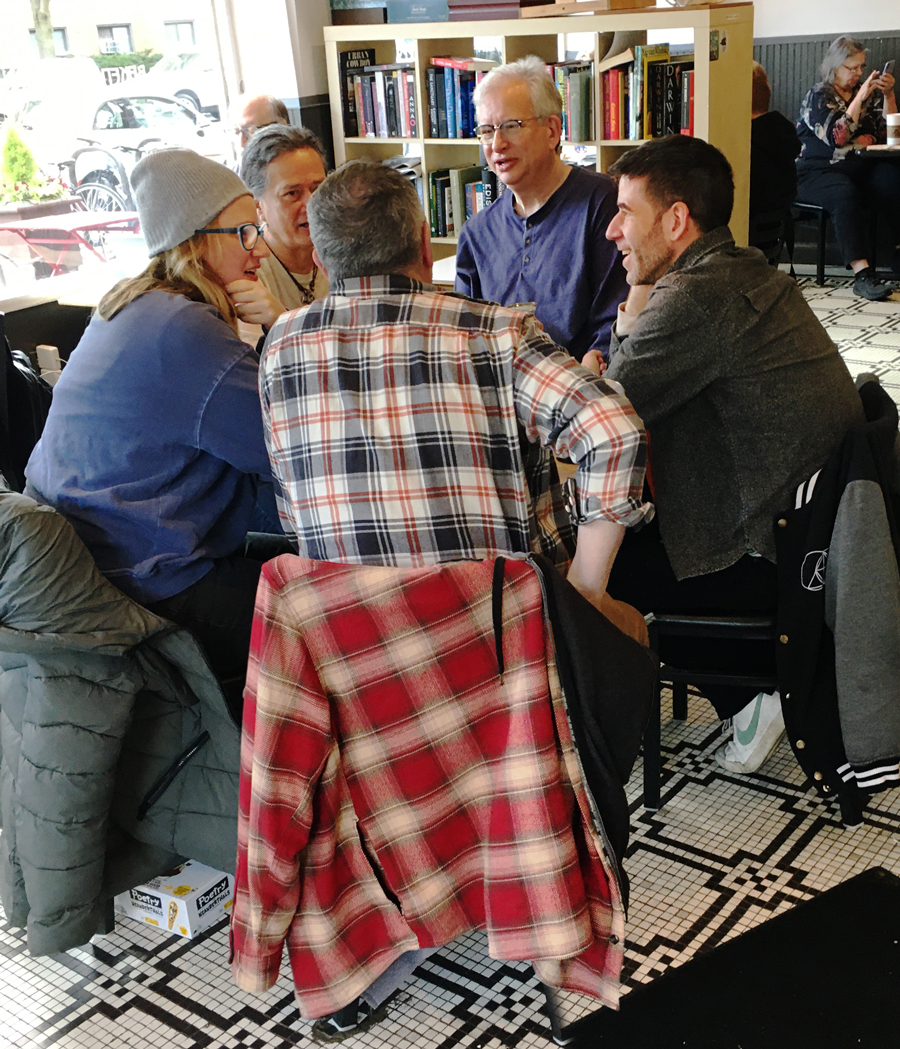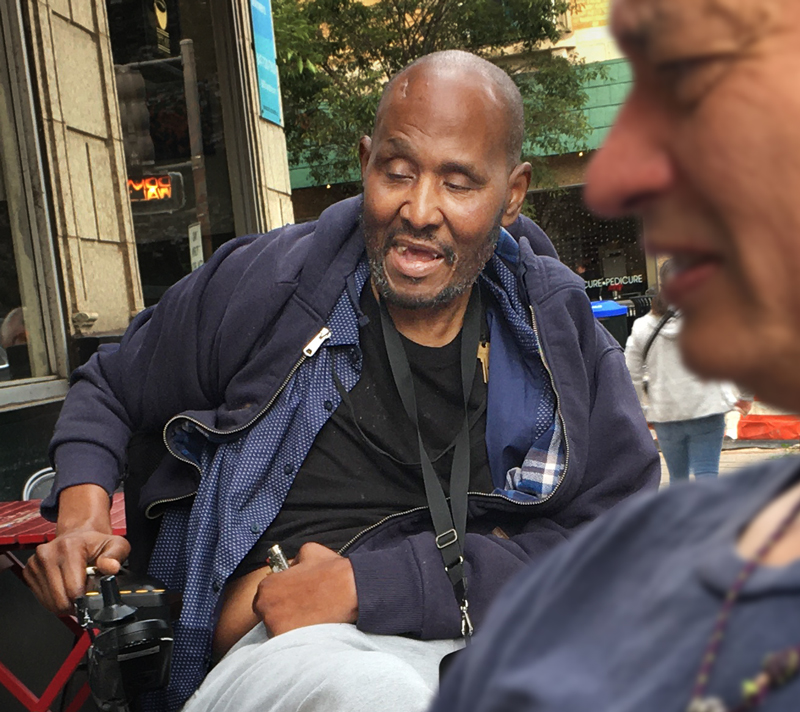Construction workers and cyclists group
Working up a sweat on opposite sides of the street.
Temperatures weren’t a problem when the workers reported to the construction site outside the windows of our coffee shop. But the air took on moisture and reached hazardous heat levels when the cyclists arrived hours later.
Saturday morning meant something different to the two groups.
For the union crew it meant overtime pay, which would climb even higher if they worked through the solstice’s extra daylight hours. For the cyclists, mostly professionals, Saturday morning offered a few hours when they weren’t expected to be logged to the system.
Their reasons for being out in the heat were different as well. The workers were there strictly for a paycheck. The cyclists were in pursuit of fitness, athletic engagement and the company of friends.
The riders came together through a “clubhouse” sponsored by a chain of cycling-accessories stores, where it’s easy to pay $300 for cleated cycling shoes and where things are covered with logos. Their bikes, one cyclist explained, sell from anywhere between $2000 to $10,000.
The construction workers by contrast could get by investing as little as $200 on summer work clothes (steel-toed shoes included).
It’s not unusual for some cycling groups to break out into a sprint at predetermined points during a thirty mile (2-3 hour) ride, pushing themselves to challenge their personal best. The workers, on the other hand, are trained to pace themselves during long work days to avoid accidents caused by fatigue and repetition.
What the groups on the respective sides of the street had in common that sweltering morning was the search for shade, a hit of caffeine and some kind of sugar fix. But as luck would have it, there weren’t a lot of first-choice pastries left on the trays by the time they all got there.![]()





